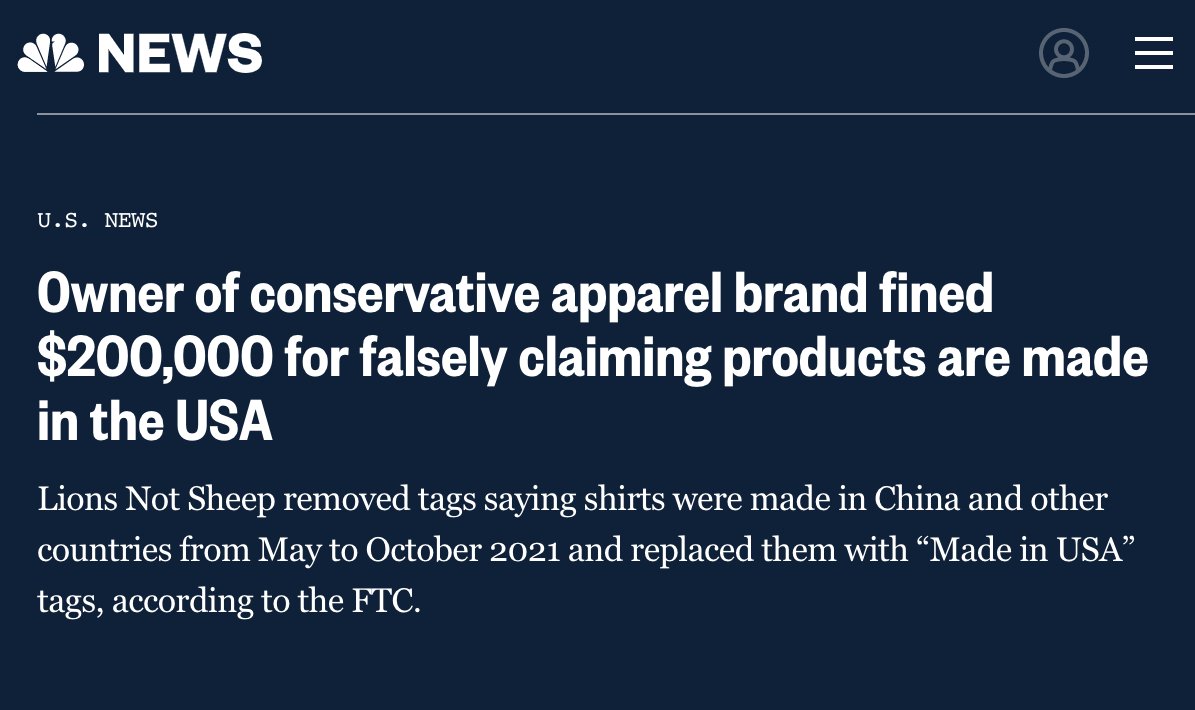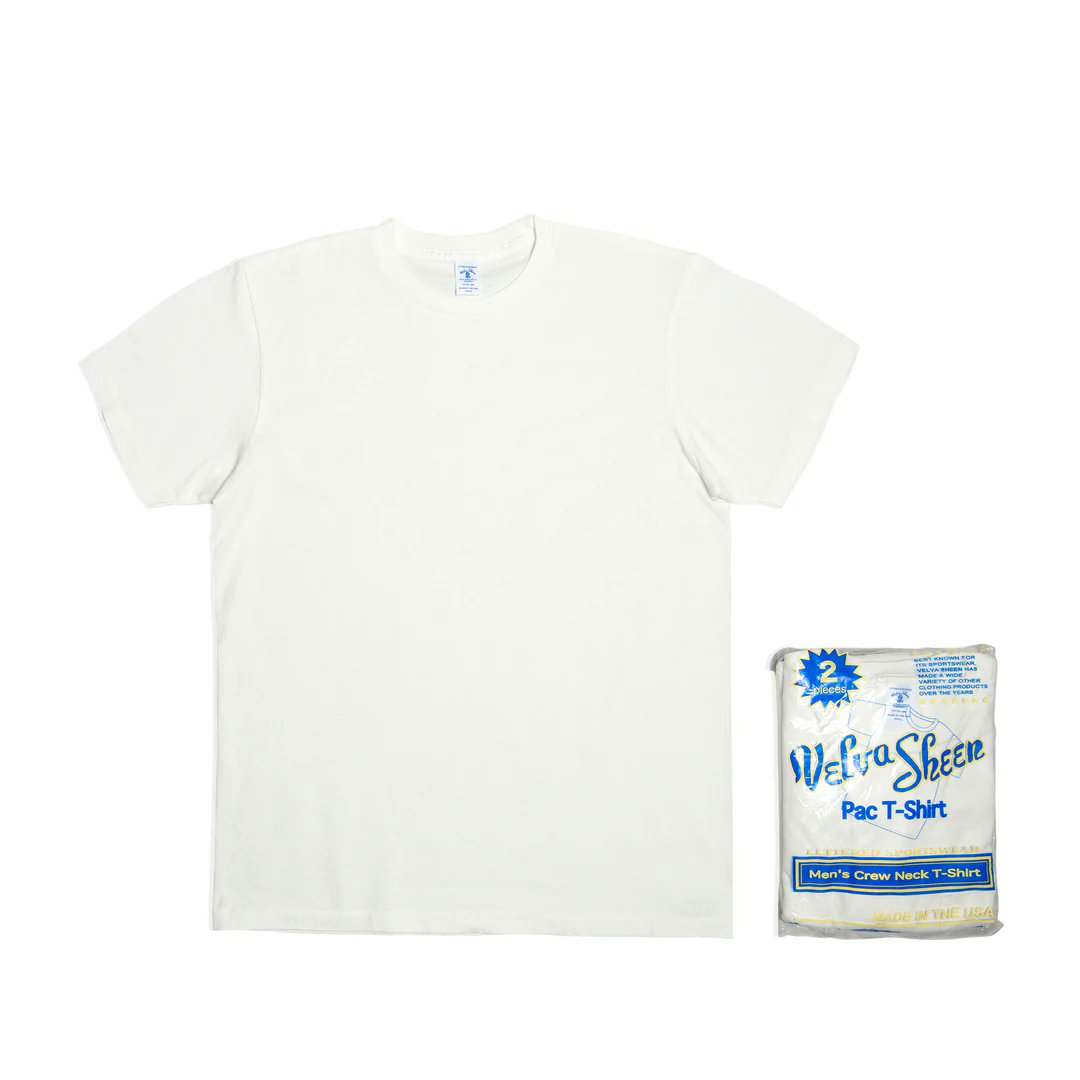Thread
This thread is not a dunk on this person, so pls don't take this the wrong way. But I thought this is a good jumping-off point to talk about MiUSA labeling.
This person said Costco sells MiUSA T-shirts for $10. Here is a photo of the label.
This person said Costco sells MiUSA T-shirts for $10. Here is a photo of the label.
It's very common nowadays for companies to misrepresent where their clothes were made, whether intentionally or unintentionally.
Think about the supply chain for clothing:
Think about the supply chain for clothing:
Fibers (animal or plant) are grown and harvested somewhere, then sent to a spinning mill to be made into yarn. This yarn is then sold to fabric mill, who turns it into fabric. This fabric is sold to a garment factory, who turns it into clothing.
If there is any finishing—say enzyme washing—that can be done at another location.
Today, there are countless companies that import t-shirts from low-cost countries and then screenprint them with a customer's design. That garment is then stamped with a "MiUSA" label.
Today, there are countless companies that import t-shirts from low-cost countries and then screenprint them with a customer's design. That garment is then stamped with a "MiUSA" label.
These garments don't meet the FTC rule for what legally qualifies as MiUSA. According to the FTC, there are three requirements if you want to call something "made in the USA"
1. The final step of the processing has to occur in the US. (e.g., screenprinting)
1. The final step of the processing has to occur in the US. (e.g., screenprinting)
2. Substantially all the manufacturing has to be done in the US. This is measured by the number of operations it takes to make the item. (e.g., making the t-shirt)
3. Virtually all the material has to be from the US. (e.g., growing and spinning the cotton, making it into fabric)
3. Virtually all the material has to be from the US. (e.g., growing and spinning the cotton, making it into fabric)
When the FTC made this rule, they tried to create something that's consistent with consumer beliefs. So when you're shopping for something, what do you think when you see "MiUSA?" Probably the above, right?
It's not uncommon nowadays to see many products—and most of all, t-shirts—labeled as MiUSA even though they don't meet all these requirements. FTC enforcement is not perfect, to say the least. Someone has to alert the FTC about what they think is a violation.
Last year, the pro-Trump apparel company Lions Not Sheep, which touts its patriotic MiUSA credentials, was fined around $200k for exactly this. The owner of the brand filmed a Facebook video where he talked about how he imports blank T-shirts from China and South America.
And how he printed these T-shirts in the USA. He said this is the only way he can sell T-shirts for $30 while supporting *some* American jobs. He also claimed you can't make a fully-made-in-USA garment anymore (he is wrong).
Anyway, from that video, someone called the FTC
Anyway, from that video, someone called the FTC
Honest companies who label correctly will be clearer about their production. They may say, "made in USA from imported materials." This is what you'll see from big brands like LL Bean bc they have legal teams and don't want to get hit with FTC fines.
It can be hard to know where our clothes are made nowadays. Country of origin labels don't always tell the full story. But if you see a $10 t-shirt that says "MiUSA," ask: "Could it be that someone grew cotton, spun yarn, knitted fabric, sewn a T-shirt, and printed it for $10?"
If you buy a T-shirt for $10, that means the store bought it for ~$4. If the store bought it for $4, that means the brand bought it for ~$2. If a brand bought it for ~$2, that means the factory spent $1 making it. Not possible on US wages.
For comparison, Velva Sheen makes t-shirts in the US. They use US-grown cotton and do all the manufacturing in the US. At the retail level, the blanks alone are $90 for a two-pack. If you want US-made clothing, you have to pay more than what you'd typically spend.
Clarification from OP. From looking at the company's website, they say they use US-grown cotton and do all the manufacturing in the US. But the shirts on their site also cost $22. Could be that these are MiUSA, but if the retail is $10, I have my doubts

